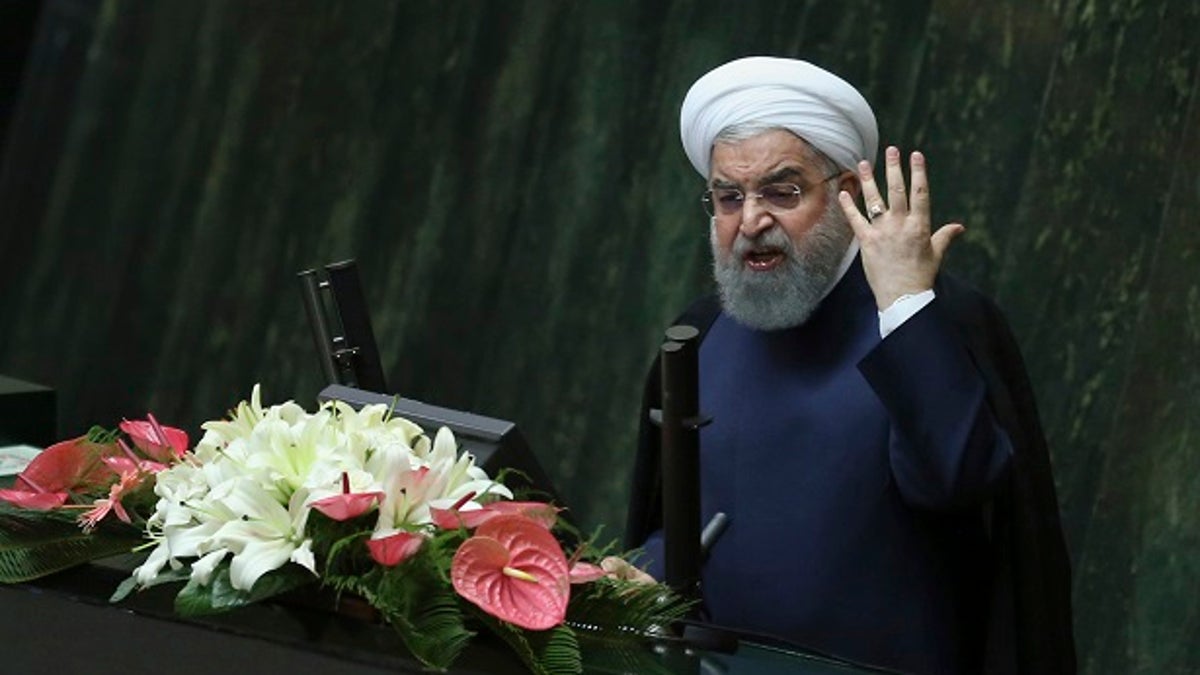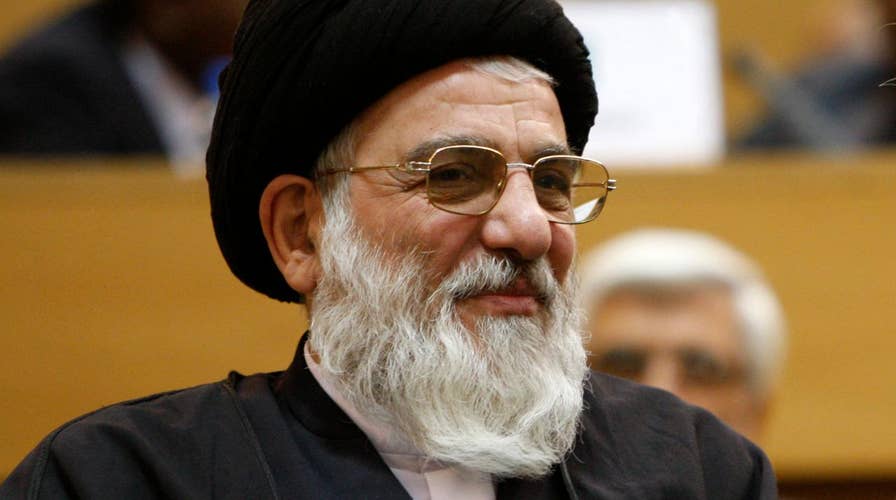Iran threatens to revive nuclear program after US sanctions
Rouhani warns the restored program would be more dangerous than the one it suspended two years ago; Rich Edson has the story for 'Special Report'
Iran is aiming to boost its missile program and export weapons in an attempt to forge allies with neighboring countries, its new defense minister said.
Gen. Amir Atami, who was appointed Iran’s defense minister earlier this month, said in a speech on ISNA News Agency on Saturday the country seeks to arm neighboring allies “to prevent war and conflict,” according to AFP.
"In combat fields, especially in missiles, we have a specific plan to boost Iran's missile power," Hatami said. "God willing, the combat capabilities of Iran's ballistic and cruise missiles will increase in this term.”
He added: "Wherever a country becomes weak, others become encouraged to raid it...Wherever necessary, we will export weapons to increase the security of the region and countries, to prevent wars."
Hatami did not specifically name countries it would be supplying weapons to, though Iran has been known to be involved in military conflicts in Syria and Iraq. Israel also see Iran as a threat to the Middle East region. Israeli Prime Minister Benjamin Netanyahu said in August that Iran was “making an escalated effort to base itself militarily in Syria. That presents a danger to Israel.”
"Iran is already in the advanced stages of taking over Iraq and Yemen, and in practice already controls Lebanon," he said.
U.S. State Department announced a fresh round of sanctions in July on 18 Iranian entities and individuals for supporting Iran’s ballistic missile program or military purchases by the nation’s Islamic Revolutionary Guard Corps.

Iranian President Hassan Rouhani speaks at a session of parliament before a vote of confidence for his cabinet, in Tehran, Iran, Sunday, Aug. 20, 2017. (AP)
Speaking to lawmakers in Parliament, Rouhani threatened to revitalize its nuclear program, though he emphasized he intended to remain loyal to the 2015 nuclear deal brokered during former President Barack Obama’s presidency.
"The U.S. has shown that it is neither a good partner nor a trustable negotiator," Rouhani said. "Those who are trying to go back to the language of threats and sanctions are prisoners of their past hallucinations. They deprive themselves of the advantages of peace."
The Iranian president added, "In an hour and a day, Iran could return to a more advanced [nuclear] level than at the beginning of the negotiations,” predating the 2015 deal.
The Associated Press contributed to this report.





















